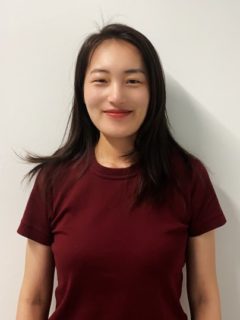Huijun Zhang
Huijun Zhang, M. Sc.
PhD student
Development and characterization of organic-inorganic hybrids and composites for tissue engineering
Supervisor: Prof. Aldo R. Boccaccini
Tissue engineering is an interdisciplinary approach aiming at inducing the grow of new tissues by combination of cell, biomaterials (scaffolds), and biological molecules, e.g. growth factors. It is of great significance to develop scaffolds that can promote angiogenesis in addition to inducing the growth and differentiation of target tissue cells. Bioactive glasses (BGs) [1] and hydrogels will be investigated in this project to develop organic-inorganic scaffolds with enhanced vascularisation capability. Organic–inorganic composites (and hybrid) materials combine both the properties of inorganic and polymer materials [2]. The angiogenic capability of BGs, in particular enhanced by the release of biologically active ions [3], will be exploited in the new composites to be developed in this project. The newly developed scaffolds will be characterised in terms of biodegradability, time-dependant mechnical properties, in addition to characterising their in vitro angiogenesis capability.
[1] Hench LL, S.R., Allen WC, Greenlee TK., Bonding mechanisms at the interface of ceramic prosthetic materials. J. Biomed. Mater. Res. 5 (1971) 117–41.
[2] Rezwan, K., et al., Biodegradable and bioactive porous polymer/inorganic composite scaffolds for bone tissue engineering, Biomaterials 27 (2006) 3413-3431.
[3] Chen, S., et al., Multi-targeted B and Co co-doped 45S5 bioactive glass with angiogenic potential for bone regeneration, Mater. Sci. Eng. C 112 (2020) 110909.

